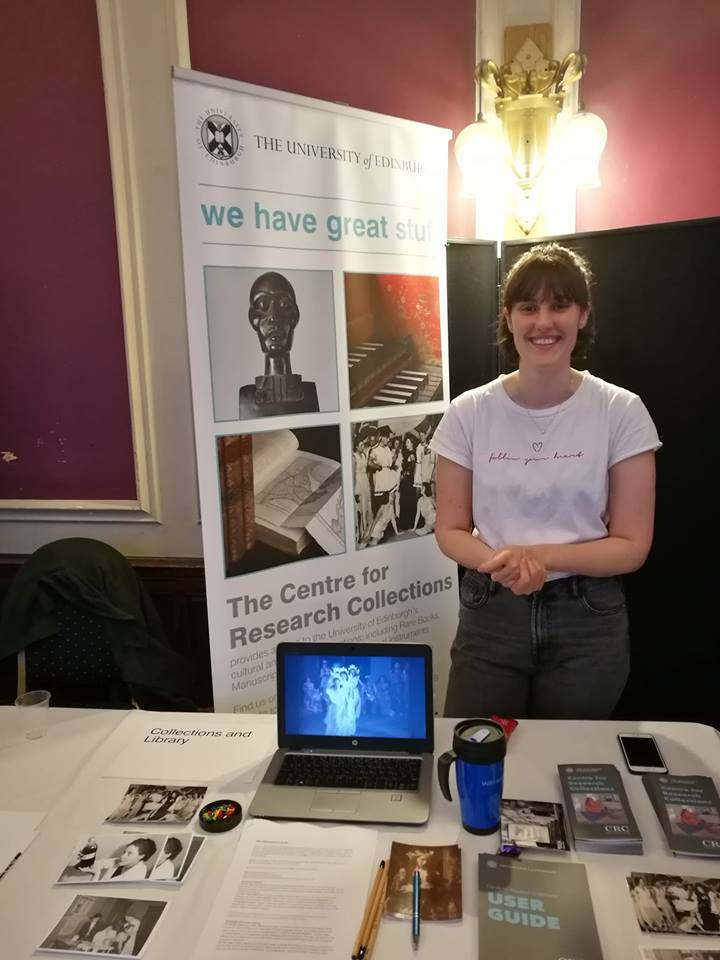
In this contribution to the Mini-Series on Academic Blogging, Francesca Vavotici, a Gender and Equality PhD Intern at the Centre for Research Collections, explains how she developed a blog to document her internship, engage with a wider audience, and highlight the extensive collections archived in the University of Edinburgh…
Before I was called for an interview at the Centre for Research Collections, I had never set foot on the 6th floor of the Main Library. To me, the archives were a place where precious and valuable materials were kept, locked away in boxes to only ever be opened by ‘serious’ academics. I, as a first-year PhD researcher, was clearly not worthy of the title, and so it was with great trepidation that, a few months after that first encounter with the collections, I took up my post as Gender and Equality Images PhD Intern and began my explorative journey through the archives.
I was soon to find out that, rather than being mythical repositories of inaccessible knowledge, the collections are a magical place of diversity and variety, invaluable tools for research and learning, and a great deal more fun than I could ever have expected. Through my internship, I started uncovering and recording narratives of marginalised people and groups, and discovered many inspiring, fascinating histories. From that came the desire to share these stories with the academic community and the wider public.
My blog, Diverse Collections, covers my research into diversity and equality at the University of Edinburgh. It serves, simultaneously, as a way to highlight the wealth and scope of the collections, while also pointing out their biases and attempting to address their imbalances. Blogging is a way to share my internship project and engage students and staff with the contents of the archives, but also a way to receive feedback and participate in wider debates on inclusion and intersectionality. Through the Diverse Collections blog, I have been able to contribute to a University-wide effort to promote equality and diversity, and I have joined stimulating and powerful conversations about what this means from a variety of different perspectives.

What I enjoy the most about blogging for my research project is that it allows me to combine my research skills with creative writing and visuals. It allows me to think critically not just of my subject matter, but of my audience and the ways in which I might be able to best reach them so as to spark a conversation and foster a community of actively engaged participants. There are a number of challenges related to the uncovering of diversity narratives in the archives, and blogging has proven a great help in overcoming some of these by inviting the participation of a wider range of experts and interested parties.
The incredibly positive response that the Diverse Collections blog, as my main outreach resource, has received has been a most pleasant surprise. The number of people who have asked to re-post my blogs, share the contents, collaborate on stories, and engage with the images has grown steadily over the months. The blog has become a diary of my research to which both myself and my audience can refer when in need of a quick reminder. Earlier in my internship – and in my academic career – I felt strongly that research was, at its core, a lonely business, but blogging completely changed that frame of mind. Now I stand corrected, and I cannot wait to share more.


